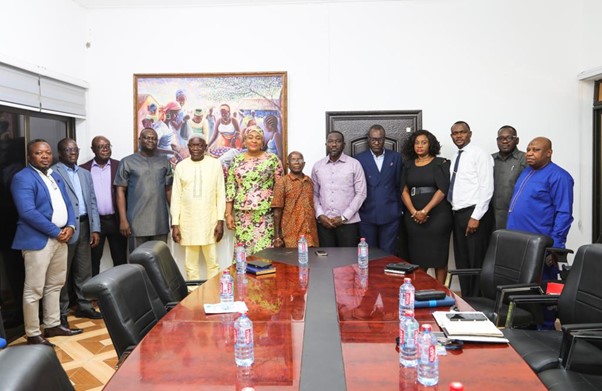The micro finance and small loans centre (MASLOC) and the Association of Small Industries (ASSI) have signed a Memorandum of Understanding (MoU) to strengthen their collaboration, which will serve as the foundation for MASLOC’s support of ASSI.
The arrangement gives ASSI access to digital credit facilities for its members, which will be provided through MASLOC.
As part of the arrangement, the microfinance and small loan centre will boost its loan recovery through beneficiaries from ASSI because they are an identifiable and credible group.
Furthermore, this collaboration seeks to maximise the effectiveness of both parties to effectively monitor and evaluate the state of the credit facilities that will be disbursed following the execution of the agreement.
MASLOC, as the apex body responsible for the implementation of government’s microfinance programmes targeted at poverty reduction, would use this new relationship with ASSI to collaborate with other development financial institutions to promote the micro and small-scale industry sector.
The MoU will strengthen efforts for both parties to leverage the partnership to support its member associations in areas such as funding, capacity-building and skills development to help them grow and expand their businesses.
Speaking on the sidelines of the signing of the Memorandum of Understanding, Hajia Abibata Shanni Mahama Zakariah, CEO of MASLOC, stated that the successful implementation of this agreement will help reflect the excellent mutual relations between ASSI and MASLOC. She noted that the institution is ready to maintain its support for ASSI and many other institutions with shared interests.
This agreement comes off at the back of a post COVID-19 Development and Productivity Enhancement Project (PSDPEP), with a funding of US$31.34million that will create a total of 4,800 direct employment and 20,000 indirect jobs after its successful execution.
The agreement, which is a five-year agreement between the Government of Ghana (GoG) and African Development Bank (AfDB), is expected to contribute to Ghana’s sustainable post- COVID-19 recovery in the health sector and support the restoration of livelihoods, income, employment opportunities and private sector development.
The project’s specific goal will be to assist the development of health-related skills in higher education for the eventual improvement of Ghana’s healthcare delivery system, and to encourage technical and entrepreneurship for employment creation among youths and women.
A component of the project, which will focus on rebuilding youths and women’s livelihoods through entrepreneurship and employment creation, will provide sources of income among the youth and women to recover from socio-economic shocks or impacts of the COVID-19 pandemic on individuals, households and enterprises, especially those operating MSMEs that were directly affected by the pandemic.
Additionally, the component will also involve the construction of up to four climate-resilient technical skills development centres, provision of technical and climate-smart skills training for women, youths and other vulnerable groups in priority training areas such as agro-industries; construction skills such as tiling, welding, plumbing, plaster of Paris; tourism, creative arts, hospital catering, and digital skills.










